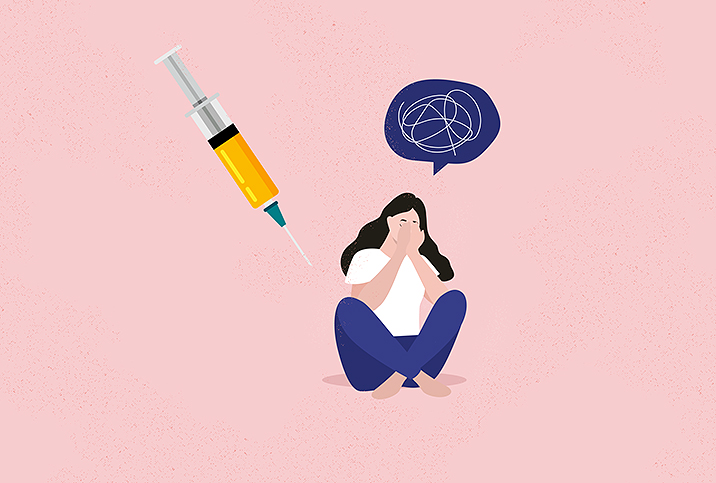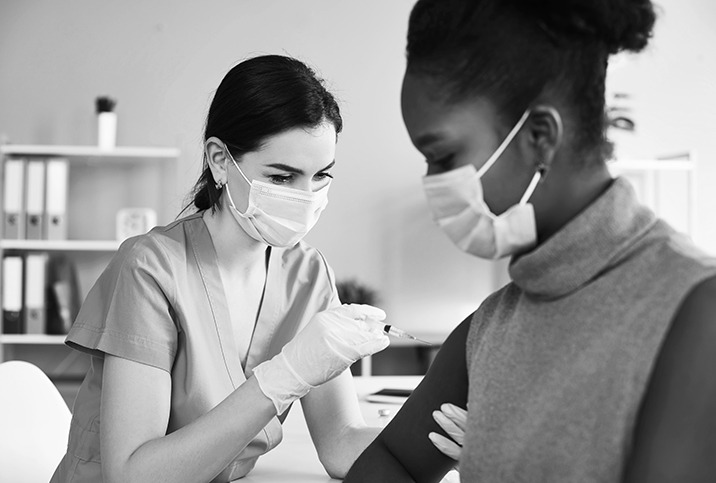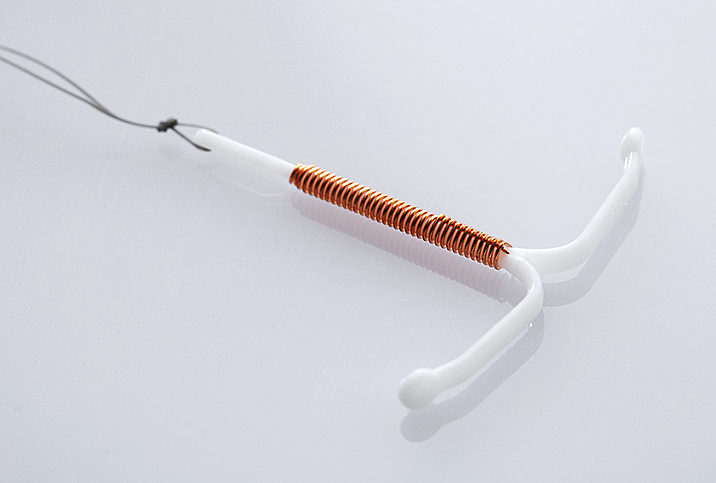Are the Menstrual Side Effects of the COVID-19 Vaccine Affecting Uptake?

Joanna, a 37-year-old from Kent in the United Kingdom, is trying for a baby. She was about to get her COVID-19 vaccine last month when something made her stop in her tracks.
"A yoga teacher I follow on Instagram shared on her stories about how the vaccine might affect periods," she recalled. "I thought, 'No, that can't be,' but after reading a bit more about it and seeing comments from her followers, I started to seriously question if I should have it."
While Joanna knows that there is no conclusive evidence that the vaccine affects fertility, she assumed an abnormal period would make pregnancy harder. "How can I plan for a baby when my cycle could be affected?" she said, "I've always been regular and I don't want to jeopardize that." At 37, Joanna doesn't exactly have the luxury of time on her side. "If my periods are altered, I'm worried this may delay us starting a family," she said.
Joanna has postponed getting her vaccine indefinitely—and she's not alone. According to a survey by fertility tracking platform Mira, 68 percent of women who are trying to conceive around the world are also concerned that the vaccine might affect their fertility.
This all comes after numerous vaccinated people shared stories on forums such as Mumsnet and on social media about changes in their menstrual cycles, including Jen Gunter, M.D., who in April highlighted the trend on Instagram, explaining that there hadn't been any official studies at that point. One recent study, however, points to it being a realistic possibility of the cycle changes.
Data from the Medicines & Healthcare products Regulatory Agency (MHRA) first published in The Times in June 2021 showed that more than 4,000 women experienced side effects including heavy bleeding, delays in menstruation, spotting and menstrual disorders following their vaccine appointment. There is also an ongoing study by researchers at the University of Illinois that, according to Time magazine, has received more than 19,000 responses.
For plenty of women, the thought of a few heavy, irregular periods isn't particularly worrisome, but for those with chronic pain, ongoing menstrual disorders and fertility concerns, it's a different story—and some women who were planning on getting the vaccine have found themselves rethinking their decision.
"I have heard concerns from my patients," Leah Henke, M.D., an OB-GYN from Minnesota, said. "Vaccine hesitancy is becoming more and more common among young women."
More than 4,000 women experienced side effects including heavy bleeding, delays in menstruation, spotting and menstrual disorders following their vaccine appointment.
For Gabby Willis, a 25-year-old from Northampton, U.K., the latest study made her question her decision to get the vaccine. She uses a copper coil IUD, and as a result, she has painful periods and irregular bleeding. "I've had constant problems with hormonal and non-hormonal contraception, so I've just become very disillusioned with health care for women," Willis said. "Pessimistically, I've accepted that the side effects of medications are almost always worse for uterus owners and that taking things can often feel like a gamble.
"I'm still going to get the vaccine, but I'm quite nervous," Willis added. "Part of me thinks, 'How much worse can [my period] get?' and the other part is scared that it probably could still get a lot worse."
Alex, who is in her 20s and lives in London, has decided to delay getting the vaccine because of the latest study linking the vaccine to changes to the menstrual cycle. "I've got PCOS and the world's weirdest period cycles," she explained. Until Alex understands exactly how and why the vaccine is causing abnormalities in people's cycles, she plans to hold off on her vaccine appointment. "I'm honestly baffled at the fact there is almost no real information with regards to how the vaccine affects the female reproductive system," she said.
It turns out there may be less to worry about than these women think. "We have lots of data to say that the COVID vaccines don't harm fertility," London-based reproductive immunologist Viki Male, Ph.D., said. "In the clinical trials, people became pregnant by accident at the same rate in the vaccinated and the unvaccinated groups, telling us the vaccine doesn't reduce your chance of getting pregnant."
Male added that COVID is actually more of a risk than the vaccine for pregnant women. "COVID in late pregnancy increases the risk of various outcomes we want to avoid, like preterm birth and stillbirth," she explained. Still, she acknowledged that "we don't yet have any data specifically in people with endometriosis or PCOS that would allow us to tailor recommendations to them."
Henke said women should get the vaccine regardless of their fertility concerns. "Many women who have had COVID have symptoms that continue after clearing the infection," she said. "These can include changes to the cardiovascular, neurologic and immunologic systems, including changes in the menstrual cycle."
For Gabby and Alex, that's cold comfort. "There should always be more in-depth studies into how different drugs specifically affect different anatomy based on sex, especially the female reproductive system," Gabby said. "We're so often overlooked and left behind."


















